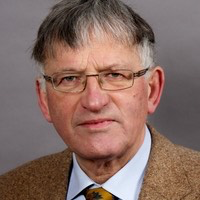Obituary Wolfgang Wildgen
Dear colleagues,
It is with great sadness that we inform our community of the loss, at the age of 80, of Professor Wolfgang Wildgen (1 January 1944, Fürth – 4 December 2024, Bremen).
Wildgen grew up in Lower Bavaria and Luxembourg. After his family’s return to Germany, in 1961, he graduated from high school in Regensburg, in 1964, and studied German, Romance Languages and Literature and General Linguistics at the University of Munich, the University of Cologne, the University of Bonn and the University of Regensburg. In 1975, he obtained his doctorate in General Linguistics and German Linguistics from the University of Regensburg, with a thesis titled Differential Linguistics. Design of a model for the description and measurement of semantic and pragmatic variation (Differentielle Linguistik. Entwurf eines Modells zur Beschreibung und Messung semantischer und pragmatischer Variation). In 1981 he became professor at the University of Bremen, where he taught Linguistics, Germanistic, Semiotics and Philosophy until his retirement in 2009.
Wildgen’s research focused on cognitive linguistics, semiotics, sociolinguistics and the history of linguistics. He collaborated extensively with Per Aage Brandt and Jean Petitot, and he made a major contribution to the dissemination of René Thom’s theories. His wide-ranging expertise encompassed visual semiotics, by investigating the relationship between texts and images (Process, Image, and Meaning. A Realistic Model of the Meanings of Sentences and Narrative Texts, Benjamins, Amsterdam, 1994) and later, urban art (Visuelle Semiotik. Die Entfaltung des Sichtbaren. Vom Höhlenbild bis zur modernen Stadt, Transcript, Bielefeld, 2013). More recently, after extending his interests to the semiotics of music (Musiksemiotik. Musikalische Zeichen, Kognition und Sprache, Königshausen & Neumann, Würzburg, 2018), Wildgen published what is perhaps his most valuable work, Morphogenesis of Symbolic Forms: Meaning in Music, Art, Religion, and Language (Springer Nature, Berlin, 2023). In the book, visual communication, music, religion (myth) and language are examined as symbolic forms (Ernst Cassirer), systems in self-organization and cooperation at the heart of human cultures.
The IASS sends its condolences to his family, friends and students.

The IASS-AIS Bureau

Leave a Reply
You must be logged in to post a comment.